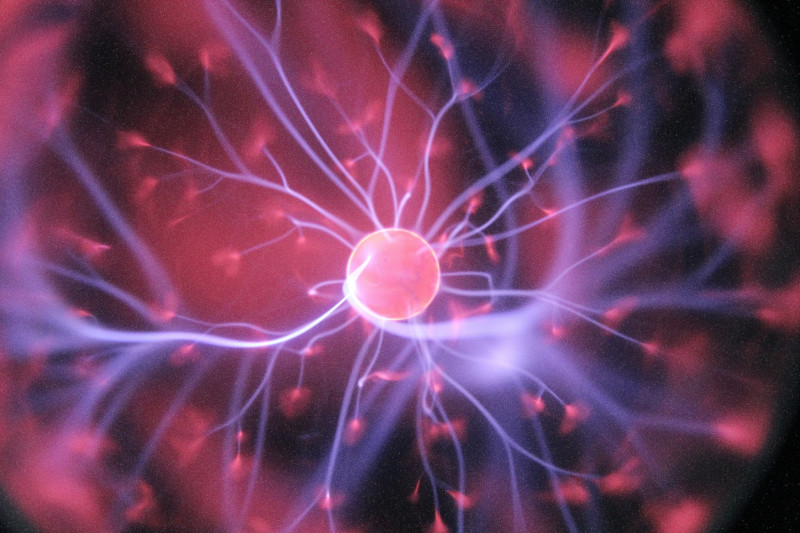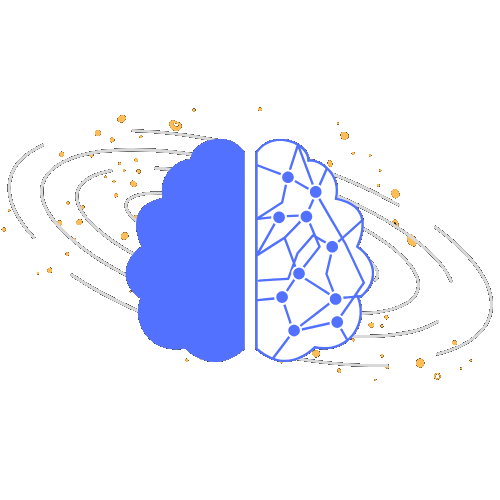
Understanding Nootropics and Their Purpose
Nootropics, also known as “smart drugs,” are substances that may enhance aspects of brain function such as cognition, memory, and learning. The name is derived from Greek words implying the “bending” or “turning” of the mind for improvement. Although there’s a general understanding of what constitutes a nootropic, as set out by pioneers like Corneliu E. Giurgea, there’s no universally agreed-upon definition, leading to ongoing debates.
Any substance that supports brain function, whether directly (like enhancing memory) or indirectly (such as fostering restful sleep, which then benefits brain function), is typically labeled as a nootropic.
How Nootropics Function
- Neurotransmitter Modulation: Some increase specific neurotransmitter production or prevent their depletion.
- Blood Flow Enhancement: Certain nootropics optimize blood flow to the brain, enriching brain cells with oxygen and nutrients.
- Brain Protection: Many can shield the brain from damage and stress, promoting neuron longevity.
- Brain Wave Modulation: Other nootropics can alter brainwave frequencies, fostering states of relaxation or increased alertness.
- Stress Management: A variety can counteract stress, indirectly benefiting cognitive health and mood.
- Neural Support: Lastly, nootropics may enhance nerve growth and connectivity by supporting vital proteins like nerve growth factor.
Some of the links on this page are affiliate links, which means we may earn a commission if you click through and make a purchase, at no additional cost to you. As an Amazon Associate, we earn from qualifying purchases.

Categories of Nootropics
There are diverse categories and subcategories of nootropics, each with its unique properties and benefits. Please note these categories are not extensive or perfect. One nootropic may fall into more than one category. Here is a list of broad categories of nootropics.
Click to jump to the section
- Adaptogens
- Amino Acids
- Cholinergics
- Natural Nootropics
- Racetams
- Energy
- Synthetic Compounds
- Vitamins & Minerals
Now let’s learn more about each category and some of the most popular nootropics that belong to them.
Adaptogens
These are natural substances, often derived from plants, that help the body adapt to stress and exert a normalizing effect on bodily processes. Examples include Ashwagandha and Rhodiola Rosea. They often support cognitive functions and overall brain health.
- Ashwagandha
- A revered herb in traditional Ayurvedic medicine, Ashwagandha is known for its ability to combat stress, enhance vitality, and improve overall mood and well-being. Learn more about Ashwagandha.
- Rhodiola Rosea
- Often found in the cold regions of Europe and Asia, Rhodiola Rosea is a herb praised for its ability to increase energy, stamina, and mental clarity, making it a popular choice for combating fatigue and cognitive slumps. Learn more about Rhodiola Rosea.
- Bacopa Monnieri
- A staple in traditional Indian medicine, Bacopa Monnieri is believed to boost memory and cognitive function, thanks to its rich content of bacosides, compounds that enhance neurotransmitter activity and nerve transmission. Learn more about Bacopa Monnieri.
- Ginseng
- Ginseng is a revered adaptogen known for its capacity to help the body combat stress and maintain equilibrium. There are different varieties, like American and Panax ginseng, each offering unique benefits. Learn more about Panax Ginseng.
- Schisandra Chinensis
- Often referred to as the “five-flavor berry” due to its complex taste profile, Schisandra Chinensis is known to support liver function and balance stress hormones, contributing to increased mental performance and stamina. Learn more about Schisandra Chinensis.
See more Adaptogens with our nootropic list.
Amino Acids
The building blocks of proteins, certain amino acids play fundamental roles in brain function. Examples like L-Theanine and N-acetyl l-tyrosine are known for their cognitive-enhancing properties.
- L-Theanine
- An amino acid predominantly found in tea leaves, L-Theanine is celebrated for its ability to promote relaxation without drowsiness, making it a popular choice for those looking to alleviate stress while maintaining alertness. Learn more about L-Theanine.
- Acetyl L-Carnitine HCL (ALCAR)
- This acetylated form of L-carnitine facilitates the movement of fatty acids into mitochondria for energy production. ALCAR is is looked at for its potential to enhance cognition, mood, and overall brain health. Learn more about Acetyl L-Carnitine HCL.
- N-Acetyl L-Tyrosine Capsules (NALT)
- A more soluble form of L-Tyrosine, NALT is believed to boost levels of the neurotransmitters dopamine, norepinephrine, and epinephrine, potentially enhancing focus, mood, and cognitive agility under stress. Learn more about N-Acetyl L-Tyrosine Capsules.
- N-Acetyl Cysteine (NAC)
- Serving as a precursor to the antioxidant glutathione, NAC can offer neuroprotective properties. It’s often used to support detoxification, mental health, and respiratory conditions. Learn more about N-Acetyl Cysteine.
- L-Tyrosine
- An amino acid precursor to the neurotransmitters dopamine, norepinephrine, and epinephrine, L-Tyrosine is believed to support cognitive function, particularly in situations of stress or fatigue. Learn more about L-Tyrosine.
See more Amino Acids with our nootropic list.
Cholinergics
This category focuses on substances that affect the neurotransmitter acetylcholine, essential for memory and learning processes. Examples include Choline bitartrate and Alpha-GPC.
- Choline bitartrate
- A basic choline salt and an essential nutrient, Choline bitartrate plays a pivotal role in maintaining the structural integrity of cell membranes and supports healthy brain function, especially memory processes. Learn more about Choline bitartrate.
- Alpha-GPC
- A cholinergic compound, Alpha-GPC delivers choline to the brain and supports the production of acetylcholine—a key neurotransmitter for cognitive function. It’s often lauded for its potential to enhance memory and cognitive performance. Learn more about Alpha-GPC.
- CDP-Choline (Citicoline)
- Serving as a precursor to both choline and uridine, CDP-Choline is recognized for its potential to support cognitive health, improve memory, and offer neuroprotective benefits. Learn more about CDP-Choline (Citicoline).
See more Cholinergics with our nootropic list.

Natural Nootropics
Derived from nature, these nootropics have roots in herbal and traditional medicine. Bacopa monnieri, which is believed to boost memory, is a notable example. Lion’s Mane Mushroom (Hericium erinaceus) has also gained popularity in recent years for its proposed ability to support maintenance, survival, and regeneration of neurons in the brain.
- Lion’s Mane Mushroom
- A unique mushroom with neurotrophic properties, Lion’s Mane is believed to stimulate the production of nerve growth factor, potentially supporting brain health, cognitive function, and neural regeneration. Learn more about Lion’s Mane Mushroom.
- Ginkgo Biloba
- One of the oldest living tree species, Ginkgo Biloba’s extracts are used for their potential to enhance memory and cognitive function, likely due to their ability to improve blood flow to the brain and their antioxidant properties. Learn more about Ginkgo Biloba.
- Gotu Kola
- Often dubbed the “fountain of life”, Gotu Kola is a staple in traditional medicine for its potential to improve brain function, heal skin issues, and promote liver and kidney health. Learn more about Gotu Kola.
- Maca Root
- Native to the high Andes of Peru, Maca Root is a cruciferous vegetable that’s been traditionally used for its ability to enhance energy, stamina, and sexual health. Learn more about Maca Root.
- Melatonin
- A hormone produced naturally by the pineal gland, Melatonin plays a pivotal role in regulating sleep-wake cycles. In supplement form, it’s commonly taken to combat insomnia and jet lag. Learn more about Melatonin.
See more Natural Nootropics with our nootropic list.
Racetams
A class of synthetic compounds, racetams are known for their neuroprotective benefits. Piracetam, the most well-known in this category, is believed to improve memory and learning capabilities.
- Piracetam
- Often regarded as the pioneer in the racetam family, Piracetam is believed to enhance cognitive function without stimulating or sedating properties. Its potential benefits include improved memory, attention, and mental clarity.
- Aniracetam
- Known for its potential to boost creativity and holistic thinking, Aniracetam is a nootropic that may also reduce anxiety and improve memory. It’s fat-soluble and known to have mood-enhancing properties.
- Oxiracetam
- Touted as a cognitive enhancer, Oxiracetam is believed to enhance memory, concentration, and learning ability. It’s known for its stimulatory properties, potentially aiding in increased alertness.
- Phenylpiracetam
- A modified version of Piracetam, Phenylpiracetam is lauded for its potential to increase physical stamina, cognitive function, and even resistance to cold. It’s one of the strongest racetams available.
- Pramiracetam
- Recognized for its potential to improve long-term memory and promote focused attention, Pramiracetam is one of the more potent racetams and may also aid in increased sensory perception.
See more Racetams on our nootropic list.
Energy Nootropics
These substances increase alertness and energy. The most common example is caffeine, which boosts alertness, attention, and energy levels.
- Caffeine
- A natural stimulant most commonly found in coffee, tea, and energy drinks, Caffeine is renowned for its ability to reduce fatigue and enhance alertness and concentration, making it the world’s most consumed psychoactive substance. In the nootropic space, caffeine is often paired with L-Theanine to balance the negative aspects of caffeine. Learn more about Caffeine + L-Theanine.
- Theacrine
- Structurally similar to Caffeine, Theacrine is a natural compound found in certain teas. It provides a smooth increase in energy and mental clarity without the typical jitteriness or crash associated with caffeine. Learn more about Theacrine.
- Ginseng
- Already described earlier, but to reiterate: Ginseng, with its roots in traditional Chinese medicine, is renowned for its energy-boosting and immune-supporting properties. There are different varieties, like American and Panax ginseng, each offering unique benefits. Learn more about Panax Ginseng.
- CoEnzyme Q10 (CQ10)
- CoQ10 is a naturally occurring enzyme crucial for energy production at a cellular level. Not only does it play a pivotal role in fueling the body, but it’s also known for its antioxidant properties and its contribution to cardiovascular health. Learn more about CoQ10.
- Tongkat Ali
- Also known as Longjack, Tongkat Ali is a herbal remedy derived from the roots of the green shrub tree Eurycoma longifolia. Traditionally, it’s been used to boost male fertility, reduce anxiety, and improve athletic performance. Learn more about Tongkat Ali.
See more Energy Nootropics with our nootropic list.

Synthetic Compounds
These are nootropics that have been created in laboratories. While racetams are a well-known group of synthetic nootropics, this category encompasses other lab-created compounds that aren’t necessarily racetams. It’s important to understand that even if a substance naturally occurs in the body, like Choline, its commercial version found in supplements might be synthetically produced in labs rather than being extracted from natural sources. This method of production is often more cost-effective and scalable.
- Noopept
- A powerful synthetic nootropic that offers cognitive enhancement and neuroprotective properties. It’s believed to enhance memory, learning, and overall cognitive function. Learn more about Noopept.
- Centrophenoxine
- An ester synthesized from DMAE and pCPA, it’s been used for its cognitive-promoting properties, especially in the context of aging and brain health. Often considered a more potent form of DMAE. Learn more about Centrophenoxine.
- PRL-8-53
- A synthetic compound with potential nootropic benefits, PRL-8-53 is believed to enhance learning and memory. It’s less researched than some other nootropics but has shown promise in limited studies. Learn more about PRL-8-53.
- Sulbutiamine
- A synthetic derivative of thiamine (Vitamin B1), Sulbutiamine is believed to improve fatigue, mood, and cognitive function. It crosses the blood-brain barrier more efficiently than thiamine itself. Learn more about Sulbutiamine.
- 4’-DMA-7,8-DHF
- A synthetic derivative of the natural molecule 7,8-DHF, it mimics the activity of BDNF, a protein vital for cognitive function. 4’-DMA-7,8-DHF is designed to have better bioavailability compared to its parent compound. Learn more about 4’-DMA-7,8-DHF.
See more Synthetic Compounds with our nootropic list.
Vitamins and Minerals
Essential nutrients that can have a direct or supportive impact on brain health and cognitive function. For example, Vitamin B12 plays a role in nerve function, while magnesium can influence sleep and mood.
- Nicotinamide Mononucleotide
- A derivative of Vitamin B3, NMN is a precursor to NAD+, a vital coenzyme in cells. It’s associated with various health benefits, including supporting cellular metabolism and possibly promoting longevity. Learn more about Nicotinamide Mononucleotide.
- Vitamin B
- A complex of essential vitamins that play a critical role in energy production, brain function, and the synthesis of red blood cells. Examples include B12, B6, and Folate. Learn more about Vitamin B.
- Magnesium
- An essential mineral involved in over 300 enzymatic reactions in the body. It’s critical for brain health, energy production, and muscle function. Magnesium has also been linked to improved sleep and stress reduction. Magensium L-Threonate is a highly bioavailable form of Magnesium (less is lost in the body) Learn more about Magnesium L-Threonate.
- Vitamin D
- Commonly known as the “sunshine vitamin”, it’s vital for bone health, immune function, and mood regulation. Recent research also links adequate Vitamin D levels with reduced risks of chronic diseases and improved mental well-being. Learn more about Vitamin D.
- Zinc
- An essential trace mineral crucial for immune function, DNA synthesis, and brain health. Zinc plays a role in wound healing, protein synthesis, and helps maintain a sense of taste and smell. Learn more about Zinc.
See more Vitamins and Minerals with our nootropic list.
Blends vs. Standalone Nootropics
Nootropics come in two primary forms: standalone substances and proprietary blends. Standalone options are individual ingredients sold on their own, while blends contain a combination of multiple ingredients crafted to achieve a particular effect.
Many companies market these blends with promises of extraordinary cognitive boosts. However, crafting your personal nootropic stack based on research and understanding of each ingredient can often yield more precise and effective results.
What’s a Nootropic Stack?
Simply put, a “stack” is a combination of nootropics taken together to achieve a specific cognitive effect. A classic example is pairing Caffeine and L-Theanine. While Caffeine stimulates and energizes, L-Theanine promotes relaxation and reduces any jitters from the caffeine, resulting in enhanced focus.
Here are some simple nootropic stacks:
- Sleep Combo Stack
- Contains Magnesium L-Threonate, Apigenin, L-Theanine. Learn more.
- Blood Sugar Management Stack
- Contains Berberine and Citrus Bergamot Extract. Learn more.
- Beginner’s Nootropic Stack
- Contains Alpha GPC, Uridine, Theacrine, and L-Theanine. Learn more.
Regulation and Safety Concerns
In the U.S., many nootropics aren’t FDA-approved for medical treatment, and regulatory stances often change. International regulations vary by country.
When considering nootropics, always prioritize your safety:
- Research: Dive deep into any substance you’re considering. Look for scientific studies and reputable sources.
- Avoid Overhyped Claims: Be cautious of any claim stating a nootropic or blend can treat or cure specific ailments, especially without substantial scientific backing.
- Consult Professionals: Before starting any nootropic regimen, seek advice from healthcare professionals.
Dosage Safety
Most nootropics, natural or synthetic, are in a powdered form when being packaged and sold. Many top nootropics are put into capsules for accurate dosing. Some nootropics are sold in their powdered forms for value or for necessity. If dealing with powdered nootropics or any supplements it is very important to measure out the proper amount. Never try to “eye ball” it. A proper mg scale from Amazon is all you need to measure out the right amount every time.

Conclusion
The world of nootropics is vast and fascinating. It’s no wonder they’ve garnered attention with potential benefits like improved memory and increased mental clarity. However, as with any supplement or medication, due diligence is paramount. Always prioritize safety and knowledge, and embark on your nootropic journey informed and prepared.
To discover more nootropics Check out our list here, where you’ll find quick descriptions of each nootropic along with trusted sources to learn more and shop.
For more in-depth information nootropics and supplements consider heading over to Examine. There you will find clinical studies, FAQs, mechanisms of action, and a detailed research feed among a lot of other useful information. It doesn’t end there though. Examine also has extensive Supplement Guides for many common categories such as memory & focus, mood & depression, sleep, and much more!
